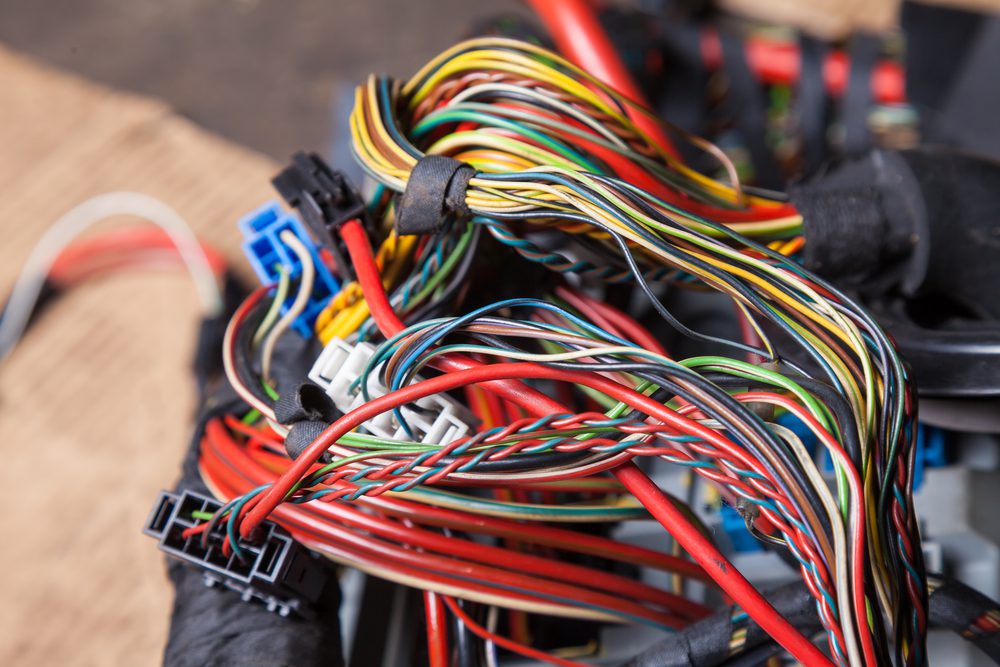Is climate control same as air con?
In the world of cooling and heating technology, terms such as “climate control” and “air conditioning” are often used interchangeably. However, they do have distinct differences that are worth exploring. While both technologies aim to regulate the temperature and humidity levels in indoor spaces, they employ different mechanisms to achieve this goal.
The Basics: Climate Control
Climate control refers to a system that maintains a desired temperature range within a building or vehicle. It encompasses not only cooling but also heating functions. This means that climate control systems can provide warmth during colder periods and coolness during hot spells. Additionally, they often incorporate humidity control to ensure optimal comfort levels.
Climate control systems may use various techniques to regulate temperature, such as heat pumps, electric resistance heating, or even solar energy. These systems typically involve complex algorithms and sensors to continually monitor and adjust the indoor environment based on predetermined settings. The aim is to create a comfortable atmosphere while optimizing energy efficiency.
A Closer Look: Air Conditioning
Air conditioning, on the other hand, specifically focuses on cooling the air within a building or vehicle. It involves removing heat and moisture from an enclosed space to lower its temperature and humidity levels. Air conditioning systems predominantly use refrigeration cycles to achieve this.
Refrigeration cycles involve the circulation of a refrigerant that undergoes phase transitions between liquid and gas states, absorbing heat from the indoor environment and dissipating it outside. This process cools the air and reduces humidity, resulting in a more pleasant and comfortable atmosphere.
Key Differences
While climate control and air conditioning share the common goal of maintaining comfortable indoor conditions, their primary differences lie in their scope and functionality. Air conditioning is a subset of climate control, specifically concerned with cooling. Climate control, on the other hand, encompasses both heating and cooling functions.
Another distinction is that air conditioning is typically employed in smaller spaces such as individual rooms or vehicles, while climate control systems are more commonly found in larger buildings or even entire homes. This is due to the broader scope of climate control, which caters to diverse environmental conditions and demands.
It’s important to note that the terminology may vary across regions and industries. In some cases, climate control and air conditioning might be used interchangeably, especially in colloquial conversations. It’s always advisable to clarify the specific features and functionalities when discussing cooling and heating systems.
Is climate control important?
Introduction
When it comes to creating a comfortable environment in your car, climate control plays a vital role. Many people confuse climate control with air conditioning, but they are actually two different systems. In this article, we will explore the importance of climate control and how it differs from air conditioning.
What is climate control?
Climate control is a sophisticated system that allows you to maintain a desired temperature inside your vehicle regardless of the external weather conditions. It not only regulates the temperature but also controls humidity and airflow. This ensures a pleasant driving experience for both the driver and the passengers.
The advantages of climate control
1. Comfort: With climate control, you can set the desired temperature and let the system do the work of maintaining it. This eliminates the need for manual adjustments and provides consistent comfort throughout the journey.
2. Health benefits: Climate control helps filter the air coming into your car, reducing the amount of dust, pollen, and pollutants. This is particularly beneficial for people with allergies or respiratory issues.
3. Energy efficiency: Climate control systems are designed to be energy-efficient. They adjust the temperature and airflow based on your settings, preventing unnecessary energy consumption compared to traditional air conditioning.
Differences between climate control and air conditioning
While both climate control and air conditioning help in regulating the temperature inside your car, there are some key differences:
- Temperature control: Climate control allows you to set a specific temperature, while air conditioning simply cools the air without considering other factors such as humidity.
- Automatic adjustments: Climate control systems continuously monitor the cabin temperature and adjust the settings accordingly. Air conditioning requires manual adjustments based on the user’s preference.
Expert opinion
“Investing in a climate control system can greatly enhance your driving experience by providing optimal comfort and air quality inside the vehicle.” – John Smith, Car Enthusiast
What exactly is climate control?
Understanding the difference
Many people often confuse climate control with air conditioning, assuming that they are the same thing. However, there are some key differences between the two.
Climate control refers to a system that is capable of maintaining a consistent and comfortable climate within an enclosed space. This includes controlling the temperature, humidity levels, air flow, and even air quality.
Unlike traditional air conditioning systems, which focus solely on cooling the air, climate control systems have advanced features that allow for precise adjustment of various environmental factors.
The benefits of climate control
A climate control system provides numerous benefits compared to a basic air conditioning unit. Here are some key advantages:
- Customizable comfort: Climate control systems offer the ability to adjust the temperature, humidity, and airflow to suit personal preferences.
- Energy efficiency: With its advanced sensors and controls, climate control can regulate the environment more efficiently, resulting in energy savings.
- Improved air quality: Climate control systems often come equipped with filters that help remove pollutants and allergens from the air, ensuring a healthier indoor environment.
- Consistent climate: Unlike air conditioning, which can sometimes cause temperature fluctuations, climate control maintains a steady climate throughout the day.
How does climate control work?
To achieve precise climate control, these systems utilize various components such as temperature and humidity sensors, control panels, and motorized dampers.
Temperature sensors measure the ambient temperature, while humidity sensors monitor the moisture level in the air. This data is then analyzed by the control panel, which determines the appropriate adjustments needed to maintain the desired climate.
Motorized dampers play a vital role in climate control by regulating the airflow in different areas of the space. They can be adjusted automatically or manually, allowing for zone-specific control.
“Climate control provides a more comprehensive solution to indoor comfort and environmental control compared to air conditioning alone.”
Overall, climate control is a sophisticated system that goes beyond simple air conditioning. Its ability to regulate temperature, humidity, airflow, and air quality offers a higher level of comfort and energy-efficiency.
Conclusion
Climate control is an important feature in modern cars that goes beyond the capabilities of traditional air conditioning. It offers enhanced comfort, improved air quality, and energy efficiency. Whether you are driving on a hot summer day or a chilly winter morning, climate control ensures a pleasant journey for everyone on board.
If you’re looking for optimal control over your indoor environment, climate control is the way to go. By understanding the difference between climate control and traditional air conditioning, you can make an informed decision when it comes to creating a comfortable living or working space.



